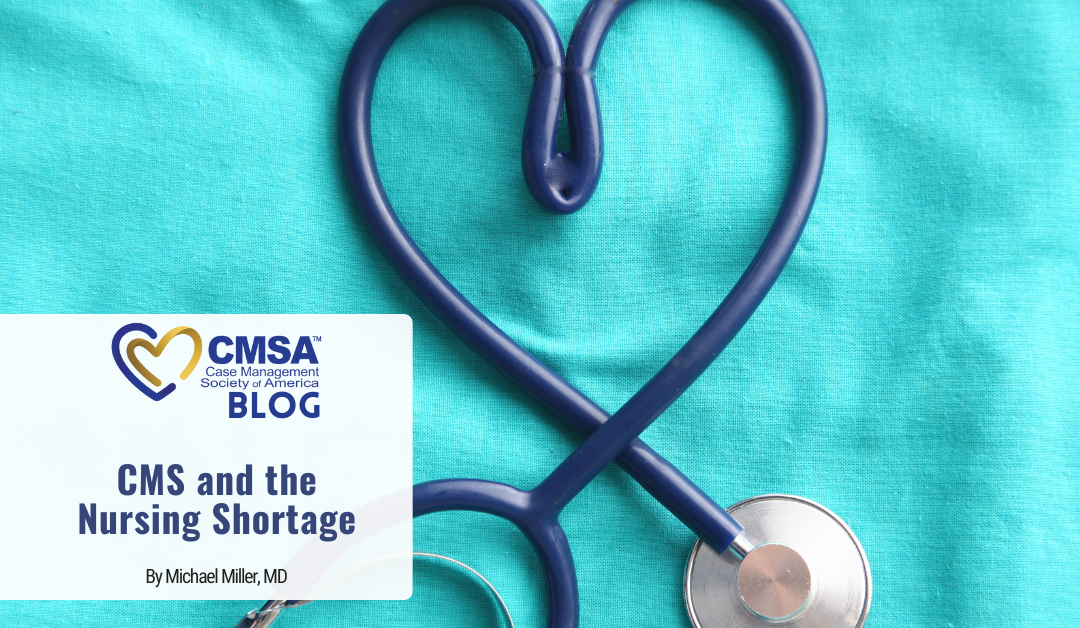By Michael Miller, MD
Several things currently in the universe are not able to be found. The quickest examples include the Ark of the Covenant, definitive signs of the yeti, universal agreement that UFOs exist, and nurses for those of us in health care! We know they exist; there are numerous signs of their existence and presence. We know that there are training institutions called nursing schools that purport to train them, and yet here in the US, and as best I can tell worldwide, it is easier to find a Unicorn than a nurse to hire. That brings several problems, the most obvious of which is that there needs to be someone to care for patients. The logic, unfortunately, is quite circular. We are training nurses, they are passing their boards, they are coming out into the community, and then, much like Harry Houdini and prestidigitation, they disappear! And yet we have huge corporate medical entities laying off nurses who then also disappear.
There was a huge prevalence of nurses during COVID when compensation reached heights known only to Bill Gates, Elon Musk and Jeff Bezos. That is no longer the case.
And so some solution is needed that achieves the best of all worlds, the ability to monitor patients, the ability for this monitoring to be received by care entities, and the ability of those care entities to respond. The good news is that this does exist, thanks to the mothership called CMS. Having recognized all of the above and more that there are unquestionably too many hospitalizations, too many rehospitalizations, and that care is best provided in the home, CMS has created a solution at least two years in progress that shows every sign of reviving and resolving at least in part this horrific nursing shortage.
CMS has designated remote patient monitoring (RPM) as the newest way to improve the entire spectrum of patient care. This involves using telemetry monitoring devices connected via the 4G network. (we all know that seniors think that Wi-Fi is something they used to listen to when held up to their ear). These unique devices include a blood pressure monitor, weight scale monitor, oximetry monitor, and a glucometer with all the trimmings. The data is uploaded to a central website with RNs (yes, we have found a few) reviewing the data and then providing direct patient communication for at least 1 1/2 hours a month to the patient.
The parameters on these devices are set by the provider of record, and when outliers are identified, immediate notification is performed. The next level is Chronic Care Management (CCM), which adds additional time to patient monitoring and communication. The beauty of this system is that the providers can access the data at any time to check on their patients, and the nurses can report to them. Soon to be added is Transitional Care Management (TCM), which involves the same monitoring occurring as the patient changes locations from their home to facilities and in other care entities. Even more exciting is the pharmacy medication management consideration to be added, which would have a twice-a-year review of patients' medications.
Of course the most exciting feature of this entire spectrum of CMS initiatives is that it is entirely free to all involved especially to those clients that have what is affectionately called "red white and blue Medicare" with a secondary. Unfortunately, Medicaid programs as of yet have not adopted this but the handwriting is on the wall with significant dollars clutched within demonstrating the cost savings.
To paraphrase Kenny Chesney, No Nurses, No Care, No Problem. CMS has created a program that makes sense. It's timely, supports those homebound and needing extra care, and manages patient care time safely and cost-effectively until the nursing shortage is resolved.
Ready to Transform Your Client Interactions? Elevate your practice AND your career with the accredited 8-hour Motivational Interviewing (MI) program, "comMIt: Comprehensive Motivational Interviewing Training for Healthcare Professionals" by MI expert Dr. Bruce Berger. Backed by evidence and designed to boost client adherence, each module includes practice questions to put your understanding of MI to the test in real-life patient scenarios. Learn More & Register: ![]() https://cmsa.org/commit/
https://cmsa.org/commit/
Bio: Dr. Michael Miller is the CEO and medical Director of Miller Care Group. He is a board-certified general surgeon. His practice is now limited to substance abuse, pain management, and advanced wound care. He is an associate professor at Marion University College of osteopathic medicine. Dr. Miller has a unique take on life and medicine and likes to spend his time Sharing his insights and written form and providing education on a variety of topics. He is currently contemplating the mysteries of the universe with his 18 month old grandchild.

